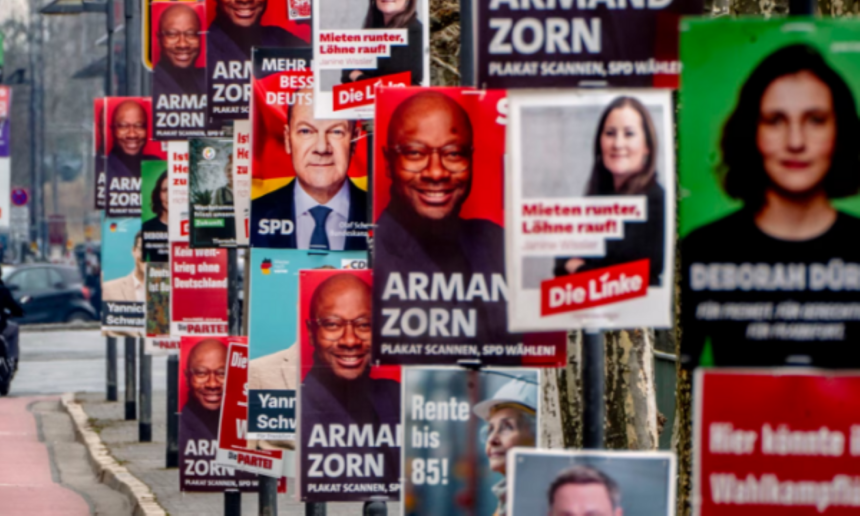Germany heads to the polls on February 23 to elect a new parliament that will shape the country’s direction for the next four years. As the largest economy in Europe and a key NATO member, Germany’s political outcome is crucial, not just domestically but across the continent.
Key Players in the Election
The race for Chancellor features four candidates: the current Chancellor Olaf Scholz from the Social Democratic Party (SPD), Friedrich Merz from the Christian Democratic Union (CDU), current Deputy Chancellor Robert Habeck from the Green Party, and Alice Weidel from the far-right Alternative for Germany (AfD). Polls suggest Merz’s CDU leads with around 30% of the vote, followed by AfD at 20%, with Scholz and Habeck trailing.
Electoral Process and Challenges
Germany’s election day begins at 8 AM and ends at 6 PM, with absentee ballots needing to arrive by the closing of polls to be counted. Exit polls and vote counting will begin immediately after, with final results expected early Monday morning.
Voters will elect the Bundestag, Germany’s lower house of parliament, which has 630 members. For a party to gain representation, they must secure at least 5% of the vote. While 29 parties are running, it’s likely that only five to eight will gain enough support to secure seats.
Post-Election Government Formation
Germany’s electoral system rarely gives any party an absolute majority, and this election is expected to be no different. The formation of a new government will likely require coalition talks. These negotiations typically result in a detailed agreement, setting the agenda for the incoming administration.
Political and Global Implications
The outcome will have significant ramifications for Europe, particularly regarding the response to the new US administration and ongoing crises in Ukraine. With domestic political instability having already affected the EU’s two largest countries, France and Germany, the new government will need to stabilize both the economy and migration policies. The departing Scholz government will remain in place until the Bundestag elects a new chancellor.
The elections, called earlier than planned due to internal disagreements within Scholz’s three-party coalition, are expected to be a critical moment in Germany’s role within the European Union and on the global stage.
4o mini







